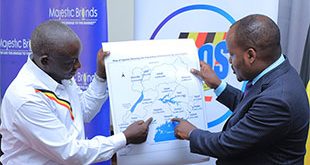
Butaleja, Uganda | THE INDEPENDENT | Residents of Budumba sub-county, Butalejja district have raised concerns about the increased malaria deaths among infants.
They say that their children register severe signs of malaria, ranging from headache, loss of appetite, vomiting, and urinating blood.
According to the residents, they have been registering an average of five malaria-related deaths on a weekly basis for the past five months.
Christine Hibiihe, a resident of Namondo village says that she has lost two sons and one daughter in a period of 11 days. Hibiihe adds that her two surviving daughters have been bedridden for the past two days and they are yet to register any improvement.
Mariam Guuffe, a resident of Napindo village says that she lost her five-year-old daughter on Monday about two days after she had completed her fast-line malaria treatment.
Adonia Wanamba, a resident of Nabuyanjja village says that he lost his lastborn child, aged six years after selling all the food crops in his garden. Wanamba narrates that his daughter was admitted to the health facility for two weeks and he was tasked to purchase drugs worth 120,000 Shillings.
Abdul Mwirya, a resident of Nassaga village says that his two boys aged six and eight years respectively, were playful, but they started vomiting blood and died after being referred for blood transfusion at Mbale regional referral hospital.
Jalia Nabwiire, a resident of Bungaga village narrates that she lost her five-year-old son after he was admitted to Mbale regional referral hospital. Nabwiire adds that the Ministry of Health should devise means of operating a mobile blood bank at Budumba health center III, where most of the infected children are treated.
The in-charge of Budumba health center III, Joseph Wasswa says that they registered 8,000 malaria cases in April, May, and June. Wasswa notes that most patients have resorted to consulting witch doctors and only rush to the health facility after registering severe symptoms, which has since increased the rate of mortality.
Wasswa further argues that unlike the 2017/2018 indoor residual spray-IRS exercise, which was highly effective and had since lowered the malaria cases to five patients per week, the recent IRS procedures carried out in February and March 2022, were not effective and he partly blames the same for the high prevalence rates.
Wasswa also challenged the Ministry of Health to conduct research about the current first-line antimalarial treatment, which he says has started registering resistance amongst both children and adults alike. He adds that the same researchers should conduct extensive studies about other antimalarial drugs within the market.
*****
URN
 The Independent Uganda: You get the Truth we Pay the Price
The Independent Uganda: You get the Truth we Pay the Price



